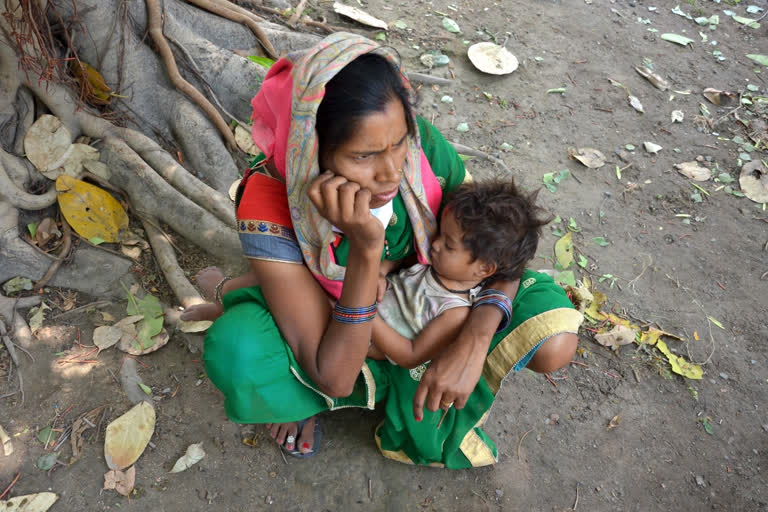Hyderabad:Arguably, the migrant workers have been the worst victims, so far, of the Covid-19 crisis in India. While there is an absence of a credible number of the migrant workers facing the wrath of a sustained imposed lockdown, the sights of their struggle to come back to their native places are rather disturbing.
The mass movement of the incredible number of migrant workers from the urban areas to their homes has only ripped open the socio-political apathy towards them in India over the last few decades. The buzz in the social media showing solidarity with the migrant workers and tokenism by the state machinery in terms of plying special trains to reach them home significantly highlights the multiple inequalities that they have been living with for decades now. The following sections highlight three major inequalities that have been critically responsible for the migrant workers’ plight.
A major inequality the migrant workers encounter is a new form of alienation and material deprivation. Unlike the traditional relationship between the factory owner and the workers, the migrant workers in a liberalized market economy hardly have any relationship with the capital owners.
The labor contractor plays a critical role in alienating the workers from the capital owners making them economically vulnerable and moreover, dependent on the former. The footloose workers, a major chunk of the migrant workers, mostly at the mercy of the labor contractor, unaware of their rights and entitlements and the industries they work for, are mostly unregistered. An unregistered worker serves better to the benefits of the industries and the labor contractors except for her own interests.
And this process of alienation of workers from the industries and their produce with the labor contractor in the middle of the business, has been a normal feature in India’s aspiration for growth and rapid urbanization endeavor.
During this unprecedented imposition of lockdown, both industries, and the labor contractors washed their hands of the workers pushing them to the brink of economic vulnerability. The governments’ indifference in terms of not considering the implications of the lockdown on the workers can be explained through the aspect of political inequality.
The political inequality that the migrant workers live with can be engaged through two critical factors; lack of political clout and poor representation in electoral politics. The migration of the workers away from the native place to distant urban areas makes them politically vulnerable as they hardly have the inclination or political power to bargain for their interests.
Especially, the footloose workers who keep moving from one city to another or multiple sites within a city for work are seldom treated as potential voters by the political parties. Once the political parties realize the potential of the migrant workers as vote banks, there have been pieces of evidence of them reaching out to them in far-off places.
